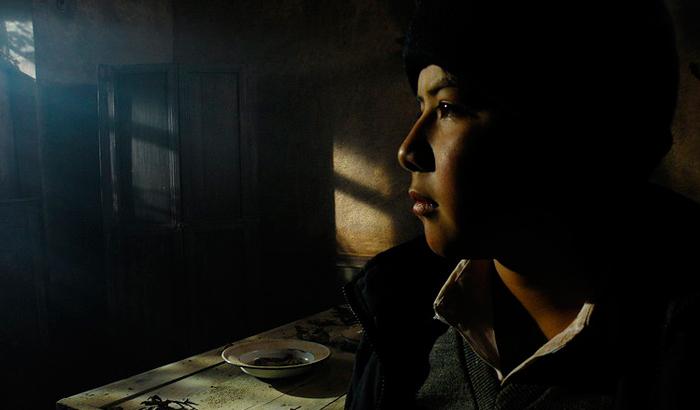
Students, faculty and community members packed the Peters Educational Center Auditorium on Friday for a screening of the Colombian film “Jardin De Amapolas,” or “Field of the Poppy.”
The event kicked off the spring section of the Latin American Film Festival, a three-film series from the department of Chicano and Latin American studies and the mass communication and journalism department’s CineCulture club.
The series continues on March 6 with the Brazilian animated feature “Rio 2096: A Story of Love and Fury” and on May 1 with and “The Golden Dream,” a Mexican film.
“Jardin De Amapolas” tells the story of a father and son cast out of their home during a civil war. The father, Emilio, is forced to take a job manufacturing heroin in the poppy fields of rural Narino in southwestern Colombia with his cousin. He does his best to shield his son, Simon, from the horrible trade, but Simon is inevitably drawn into the fields.
Patricia Rodriguez, a professor of Latin American politics at Ithaca College, was on-hand to put the film in the proper context.
“Colombia has been in a state of civil war since the 60s,” Rodriguez said. “Five million people have been displaced in Colombia during the conflict — and that’s just those wandering in the country. Many have left it.”
Rodriguez, who spent seven years working in Cauca just north of Narino, said the fighting takes place between the Colombian government’s paramilitary troops, rebel guerrilla forces and drug mafias. The United States has backed the paramilitary with millions of dollars in weapons and training in hopes of ending the drug trade, but Rodriguez believes this has only complicated matters.
The film, which Rodriguez said is an accurate dramatization of the conflict, illustrates the plight of those caught in the crossfire. Emilio and Simon are trying to survive, but they face violence and the threat of death daily from guerilla forces, the paramilitary troops and Emilio’s drug lord bosses.
Simon’s side of the story begins with literal and figurative puppy love. He and a neighbor girl, Luisa, bond over the daily theft of a dog. The two kids steal the dog from another neighbor’s yard each day and return it before she gets home from work.
The two do their best to stay out of the violent affairs of the adults, but that proves to be impossible. An active minefield surrounds the idyllic forest where they spend their days. Simon soon discovers his father’s clandestine work and begins to help out around the drug lab. The paramilitary identifies Luisa’s father as a guerrilla spy.
The movie left Friday’s audience with many questions for Rodriguez, who answered what she could for more than an hour. Among the chief concerns of the crowd was the United States’ backing of what the film portrayed to be a murderous band of thugs, the paramilitary.
The solution to this problem, Rodriguez said, is not a simple one. She suggested that the U.S. shift its aid from military to economic and applauded local nonviolent activist groups in Colombia.
“I would recommend checking out the groups working for peace in Colombia, like Witness for Peace and Fellowship of Reconciliation,” Rodriguez said. “But really the most important thing is getting educated from alternative forms of media.”
“You’ll have to look beyond the mainstream media to really find out what’s happening.”




